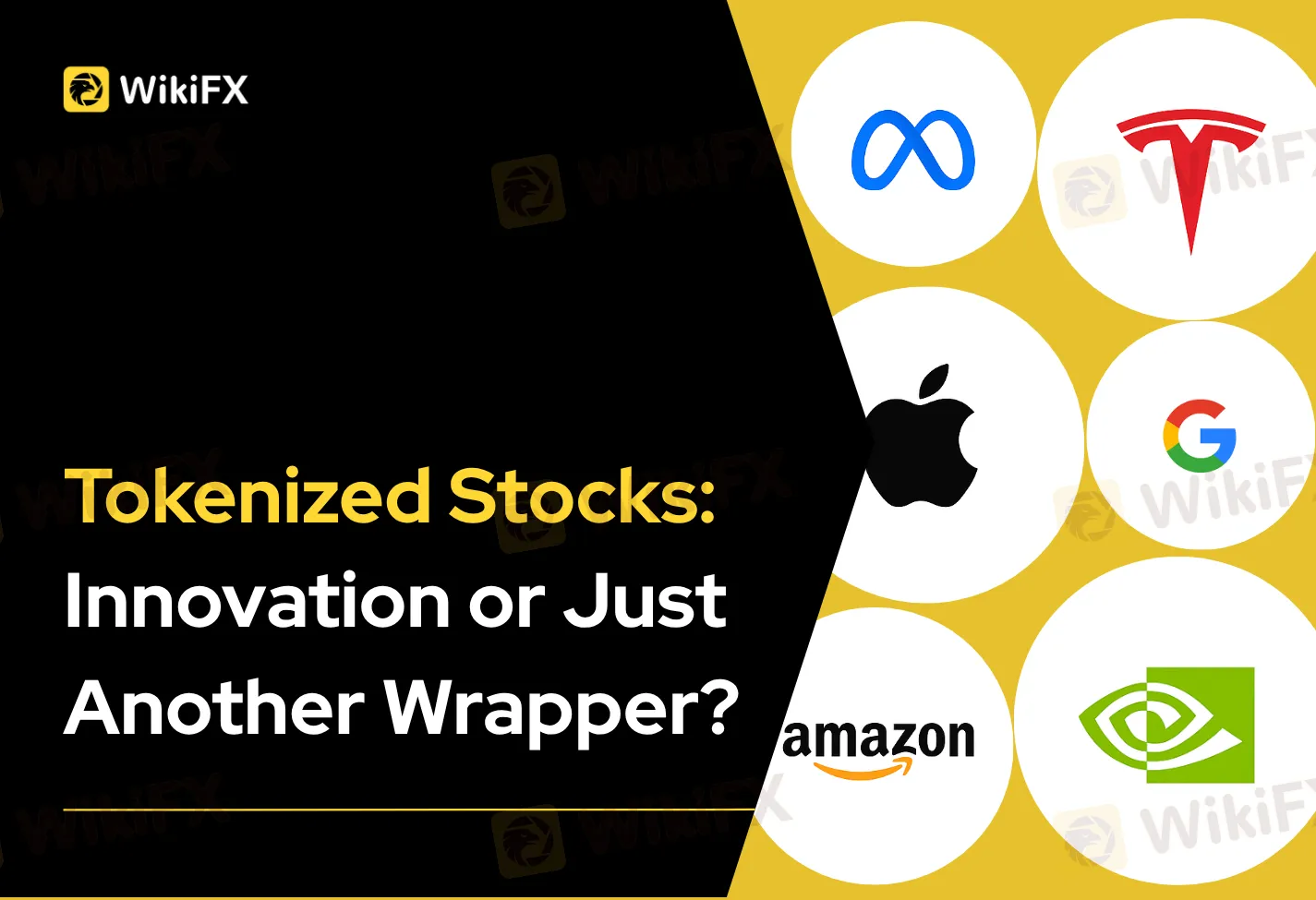Tokenized Stocks: Innovation or Just Another Wrapper?
Abstract:While tokenized stocks promise global, round-the-clock trading, many platforms only offer synthetic exposure similar to CFDs. Without shareholder rights or deep liquidity, their added value remains in question.

Tokenized stocks are gaining momentum as platforms like Robinhood, Kraken, and Bybit offer synthetic equity assets to users outside the United States. These blockchain-based tokens track the value of real-world shares, promising benefits like 24/7 trading, instant settlement, and fractional ownership. However, beneath the surface of innovation lies a familiar structure—one that closely resembles Contracts for Difference (CFDs), raising questions about whether tokenized stocks offer any real advantages over existing products.
The Real Value Proposition—And Its Limits
Tokenized stocks are structured to mimic real equities through custodians or special-purpose vehicles holding the underlying shares. This approach enables users to gain exposure to companies like Tesla or Apple without owning the stock directly. Supporters hail this as a revolutionary step toward democratizing access to U.S. capital markets, particularly in Europe where regulation is more accommodating. Robinhood, for instance, has launched over 200 tokenized stocks in Europe on Arbitrum, while Kraken and Bybit partner with Swiss-based Backed Finance to issue Solana-based tokens.
But critics argue that the core offering—price exposure without ownership rights—is not new. CFDs have offered similar features for years, including leverage, small trade sizes, and quick access. Tokenized stocks may simply be “a wrapper,” says Freedx executive Anton Golub, offering no shareholder rights, such as dividends or voting power. In this light, the promise of “democratization” may feel more like a marketing strategy than a structural breakthrough.
Liquidity and Compliance: The Achilles Heels
Despite the hype around 24/7 markets, liquidity is still a problem. Market makers cannot hedge risk during weekends or holidays, meaning traders are often quoted wide spreads with questionable execution quality. Furthermore, since most platforms exclude U.S. users, global adoption remains fragmented. The lack of interoperability with traditional exchanges also limits arbitrage, restricting price efficiency.
Compliance is another hurdle. Many of these platforms operate outside the U.S. due to regulatory uncertainty. In contrast, Coinbase is attempting to launch tokenized stock trading within the U.S. under SEC oversight, hoping to pave a more compliant path. Without regulatory clarity, however, tokenized stocks remain largely confined to specific jurisdictions, limiting their long-term potential.
Conclusion
Tokenized stocks represent an interesting evolution in fintech, blending blockchain technology with traditional financial instruments. Yet, for all the talk of innovation, they currently replicate many features of CFDs without providing true equity ownership. Until regulatory frameworks mature and platforms solve liquidity and governance challenges, tokenized stocks may remain a niche alternative rather than a game-changer in global markets.
Read more

Forex MT4 Indicators: What Do They Reveal About Currency Trading?
Wondering what forex MT4 Indicators do to magnify your trading experience? Don’t fret, here is your answer! They are mathematical tools that allow traders to do effective technical analysis of their preferred currency prices. The technical analysis is built on a strong belief that history repeats itself. This is a clear indicator of past price behavior, providing reliable cues for future price action. Traders can thus look forward to using MetaTrader 4 indicators to understand the existing price action and spot the best entry or exit price points in the market.

Forex Trading Options: Definition, Importance, Benefits & Key Insights
Want to invest in forex trading options? You should first learn the concept of foreign exchange options. A lot of traders remain unaware of it. Forex options serve as a great tool for investment diversification and hedging of a spot position. They can also be used to predict short or long-term market views as opposed to trading in the currency spot market.

What is Equity in Forex Trading - An In-depth Guide Awaits You!
Wondering what does equity mean in forex trading? You are at the right place! It simply indicates the traders the capital they have currently to trade. Equity is arrived at after adding current profits to the trading balance. In case the trade witnesses losses, they will be subtracted from the trading balance. Upon the closure of all trades, your trading balance is your equity.

SEC Flags Five More Unregistered Crypto Platforms in PH
SEC PH warns on Aug. 20, 2025, that five more unregistered crypto platforms target Filipinos; enforcement and website/app blocking to follow.
WikiFX Broker
Latest News
What Is a Contract Size in Forex? A Complete Guide for Traders
Ultima Markets Joins Inter Milan as Asia Partner
Forex MT4 Indicators: What Do They Reveal About Currency Trading?
The Essential Guide to Stop-Limit Orders in Forex: Price, Strategy & Execution
Why Forex Reviews and Feedback Really Matter
AETOS Shuts Down Offshore CFDs Broker Operations
Warning: MultiBank Group – User Reviews Highlight Slow Withdrawals and Hidden Risks
Investors Beware! MultiBank Group and the Truth About Its Regulation
FCA Exposed 10 Brokers — Are You Trading with One of Them?
What Licenses Does ActivTrades Hold and Where Are Its Offices?
Rate Calc

